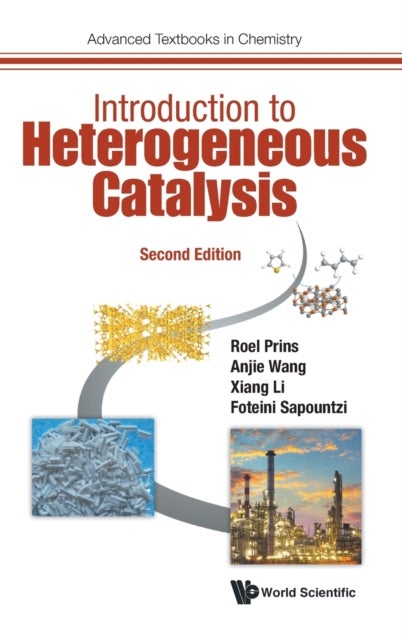
Introduction To Heterogeneous Catalysis av Roel (Eth Zurich Switzerland) Prins, Anjie (Dalian Univ Of Technology China) Wang, Xiang (Tianjin Univ Of S
1039,-
Catalysis is a multidisciplinary subject. This book introduces the chemical, materials, and engineering principles of catalysis so that both MSc and PhD students with a basic but not extensive knowledge of chemistry and physics and those with a basic understanding of chemical engineering can learn more about catalysis. Examples are taken from catalytic reactions and catalysts used in the energy, petroleum, and base-chemicals industry.The second edition differs from the first edition in the way basic topics are integrated with catalytic applications. The authors introduce two new chapters: ''Cleaning of Fuels by Hydrotreating'' and ''Electrocatalysis''. Hydrotreating is a very important industrial process and offers the opportunity to discuss metal sulfide catalysts. Electrocatalysis gains more and more attention because it can be used to minimize the anthropogenic CO2 emissions. Solar, wind, and hydroelectricity can drive water electrolysis and CO2 electroreduction and, therefore, exce








